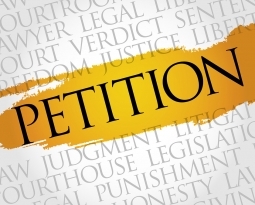Equitable distribution of assets and pensions in New York
When two parties divorce in New York, the division of their property has to be agreed upon by the couple and / or determined by a judge. This process is referred to as equitable distribution.
People sometimes confuse ‘equitable’ with ‘equal’, which suggests a 50-50 split between the two parties. Equitable distribution of marital property and pensions requires the court to determine what each spouse contributed to the marriage as well as what their individual needs are, in order to accomplish a fair division.
Prior to the enactment of the equitable distribution process, New York took a common law property approach, meaning that assets were divided according to whoever actually held title to them. Today, marital property, which includes everything acquired by each spouse during the course of the marriage, is subject to equitable distribution.
What is marital property?
Marital property includes:
- Each spouse’s income
- Property purchased while married
- Pension benefits earned while married
- Any appreciation of this property during the relationship
Professional practices, businesses, and improved earning ability due to attainment of a professional license or degree can be considered marital property and subject to equitable distribution. Because careers and businesses are difficult to divide, most times the court will award the practice or company to the spouse who runs it, while the other receives property of comparable value.
Retirement and death benefits are also subject to distribution. One spouse may be entitled to a portion of the other’s pension or Cost-of-Living Adjustment. In some instances, a spouse may be required to name their ex as beneficiary of any pre-retirement death benefits.
What is separate property?
Separate property is not subject to equitable distribution. It includes:
- Property each spouse acquired prior to the marriage
- Property designed as separate in a valid prenuptial agreement or related contract
- Assets that a spouse personally received as a gift or as the result of an inheritance, except from the other spouse
- Assets obtained through the value appreciation or proceeds of separate property, unless the other spouse enabled or contributed to the increase
- Personal injury compensation that either spouse may have received except lost wages
When deciding how to distribute marital property equally, the court takes several factors into account. They include:
- Length of the marriage
- Age and health of each party
- The income and assets of each spouse at the time of marriage and when divorce was initiated
- Whether or not spousal support has been awarded
- What claim, if any, one spouse has to marital property that is not in their name
- Whether or not a custodial parent needs to live in the marital home with the children
When a couple has decided to divorce in New York, each spouse should always retain their own divorce attorney, to increase the chances of a fair outcome for all involved. Experienced legal counsel is especially important when a divorce is contested, which means that it has issues that can’t be resolved out of court. While a judge is the final word in the latter instance, a competent family attorney will advocate their client’s interests and help bring about an acceptable solution.
If you are considering divorce, then it is important to work with a qualified attorney. The lawyers of Eskin & Eskin, P.C. have over 40 years of combined experience and have helped many clients going through the divorce process. Call 718-402-5204 to set up your free consultation and visit www.EskinandEskinLaw.com to learn more.





